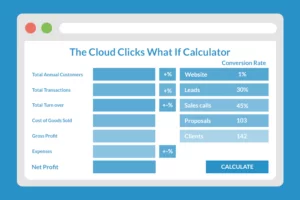Starting a business in Australia can be an exciting venture with opportunities and challenges. Whether you’re an aspiring entrepreneur or business owner looking to expand your existing business, this step-by-step guide will provide valuable insights on navigating the process successfully.
Table of contents
- Introduction
- Choosing the Right Business Structure
- Registering Your Business
- Understanding Tax Obligations
- Securing Permits and Licenses
- Creating a Business Plan
- Setting Up Financial Systems
- Building an Online Presence
- Hiring Employees
- Understanding Employment Regulations
- Marketing and Advertising
- Managing Finances
- FAQs (Frequently Asked Questions)
Introduction
Starting a business requires careful planning and execution. Understanding the legal and regulatory framework, market conditions, and other crucial aspects is essential before diving in. This article provides a comprehensive guide to help you start a business in Australia.
Choosing the Right Business Structure
Before you start your business, it’s crucial to determine the most suitable business structure for your venture. Australia offers various options, including sole trader, partnership, company, and trust. Each structure has pros and cons, and choosing the one that aligns with your goals and requirements is essential.
Registering Your Business
Once you’ve decided on the business structure, the next step is to register your business with the appropriate authorities. In Australia, this involves obtaining an Australian Business Number (ABN), registering for Goods and Services Tax (GST) if applicable, and registering your business name.
Understanding Tax Obligations
Understanding and fulfilling your tax obligations is crucial for any business in Australia. You must register for the relevant taxes, such as Goods and Services Tax (GST) and Pay As You Go (PAYG) withholding, and keep accurate records of your financial transactions.
Securing Permits and Licenses
Depending on the nature of your business, you may need to obtain permits and licenses from various government agencies. This includes licenses for operating in specific industries, permits for specific activities, and compliance with health and safety regulations.
Creating a Business Plan
A well-crafted business plan is essential for the success of your venture. It helps you define your goals, identify your target market, analyze competitors, outline your marketing strategy, and plan your finances. A business plan is a roadmap to guide you through the initial stages and beyond.
Setting Up Financial Systems
Setting up robust financial systems is vital to keep track of your business’s financial health. This includes opening a business bank account, implementing accounting software, managing cash flow, and staying on top of invoicing and bookkeeping.
Building an Online Presence
In today’s digital age, having a strong online presence is crucial for business success. Create a professional website, leverage social media platforms, and implement digital marketing strategies to reach your target audience effectively and build brand awareness.
Hiring Employees
As your business grows, you may need to hire employees to support your operations. Understand the legal requirements for hiring employees, including employment contracts, workplace agreements, and relevant entitlements such as minimum wages and leave entitlements.
Understanding Employment Regulations
Running a business in Australia comes with specific employment regulations that you must adhere to. It’s crucial to understand the Fair Work Act, which sets out the minimum employment standards, including wages, working hours, leave entitlements, and termination procedures. Familiarize yourself with these regulations to ensure compliance and maintain a fair and productive work environment.
Marketing and Advertising
Effective marketing and advertising strategies are essential to promote your products or services and attract customers. Identify your target market, develop a marketing plan, and utilize various channels such as digital marketing, traditional advertising, public relations, and networking to reach your audience and drive business growth.
Managing Finances
Proper financial management is crucial for the long-term success of your business. Implement sound financial practices, including budgeting, monitoring cash flow, managing expenses, and reviewing your financial statements regularly. Consider consulting with a financial advisor or accountant to ensure accurate record-keeping and strategic financial decision-making.
Growing Your Business
As your business establishes its presence, exploring growth opportunities is essential. Continually assess market trends, customer needs, and industry developments. Look for ways to expand your product or service offerings, enter new markets, forge partnerships, and invest in innovation. A growth mindset and adaptability are key to staying competitive and thriving in the dynamic business landscape.
- Networking and Collaboration
Networking and collaboration play a vital role in business success. Attend industry events, join professional associations, and engage in networking activities to connect with like-minded individuals, potential partners, and industry experts. Collaborate with other businesses on joint ventures, strategic alliances, or shared marketing initiatives to leverage collective resources and expand your reach.
- Conclusion
Starting a business in Australia requires careful planning, thorough research, and a proactive approach. By following the steps outlined in this guide, you can confidently navigate the process. Remember to choose the right business structure, register your business, understand tax obligations, secure necessary permits, and develop a solid business plan. Additionally, focus on building a strong online presence, hiring the right employees, and complying with employment regulations. Manage your finances effectively, implement marketing strategies, and embrace growth opportunities. With dedication, perseverance, and a well-rounded approach, you can set yourself up for success in the Australian business landscape.







